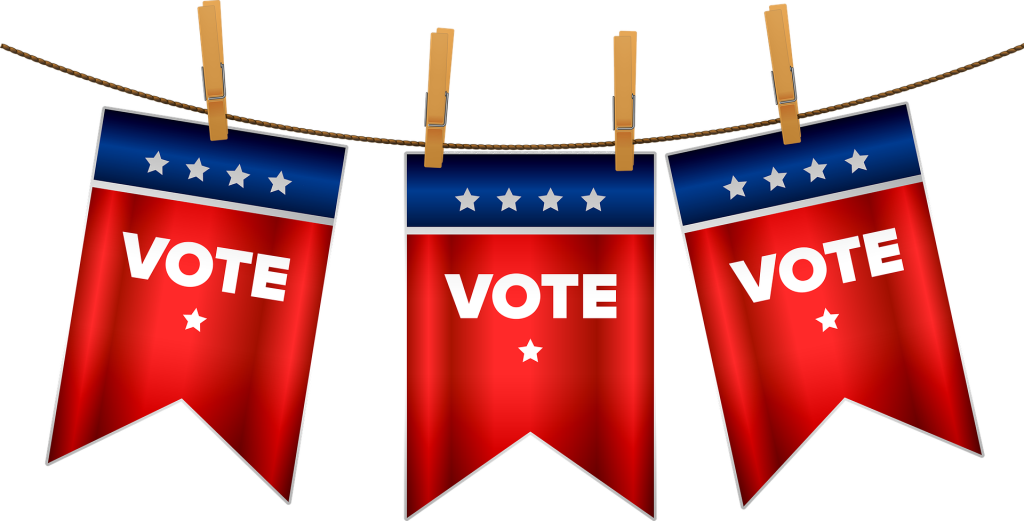How to raise politically savvy kids – without the anger and vitriol
When it comes to unsettling times, 2020 appears to be in the running for first prize. From COVID-19 to worldwide protests, there’s been no shortage of anxiety-inducing events to keep everyone awake at night. Now, with only about five months until the national election, politics are once again taking center stage (not that they ever left), and for many, that will only add to the frustration and turmoil.
If you’re a parent or guardian concerned about how the current political climate may be affecting your kids, you’re not alone. Many parents worry about their children experiencing higher levels of anxiety after witnessing angry exchanges, threatening news stories, and the constant combative nature that characterizes many political campaigns.
Fortunately, there are ways to help your children learn about politics and navigate the political environment without compromising their mental health. To do this effectively, however, requires two different conversations – one focused on younger children and another one for teens. That’s why I’ve decided to tackle this subject in two separate blog posts. Let’s start with younger children.
Listen first. This is my mantra for so many parent-child interactions. It’s always helpful to find out what your children already know before you start talking. Not sure they’re ready for the conversation? If they start asking questions, you can be fairly certain the timing is right. Like so many topics, if they don’t hear about it from you, they will probably hear it from someone else.
Talk about voting. Voting is a great way to introduce younger children to the world of politics. Compared to the overarching political landscape, this is a much easier concept to grasp. Start by taking them to the voting booth with you. Help them understand that they have a right and a responsibility to vote, and then talk about local issues and political positions they can relate to.
Share kid-friendly news sources. The current political landscape is complex. Since younger children are probably not ready to absorb much of this information, start with some kid-friendly news sources, such as Time for Kids, NBC Learn or Scholastic Kids Press. Read books about the founding fathers or how women fought for the right to vote. Max for President and Vote (DK Eyewitness Books) are great titles that capture our political system in child-friendly terms. I’m sure your librarian can recommend others.
Define acceptable behavior. Elementary-age children have been taught that name-calling, bullying and making threats are not acceptable ways to treat others. They hear it from their teacher at school, and hopefully they hear it from the other adults in their life as well. Make sure they understand that respect is important when talking about politics as well. People should be able to express their opinions and thoughts in a safe manner, without being ridiculed or threatened. Kids need to learn how to be good listeners and how to let other people express their point of view.
Talk about political ads. When talking to older elementary-age children, point out some of the ways advertising is created to sway public opinion. For instance, visuals and music are used to appeal to the audience and persuade them to think or act a certain way. The next time you and your child see a political ad, take a few minutes to break it down so your child can see how this is done. Learning to decipher these tactics is part of critical thinking, and the sooner your child learns this, the better.
Be a positive role model. Your kids may not be reading the comments section of your local newspaper, but they do see your reaction to it. Be careful not to convey an alarming tone as younger child can quickly sense the tension. If something makes you angry or even preoccupied, take a few minutes to collect your thoughts and calm down. If possible, take a short walk, count to 10, or take some deep breaths to help yourself relax.
The same is true of how you conduct yourself with other people who may not share your political views. First and foremost, you want to teach your child that it’s okay to respectfully disagree with others, but it’s not okay when the conversation turns physically or verbally aggressive. Remember that your child is watching.
David Lowenstein, Ph.D. is a psychologist and the clinical director of Lowenstein & Associates, Inc. in Columbus, Ohio. In addition to providing therapeutic services to individuals and families, he offers training and consultation to numerous associations, schools and agencies around the country. Additionally, he is a frequent radio and TV guest and a resource and contributing writer for numerous newspapers and magazines nationwide. Contact Dr. David Lowenstein at 691 South Fifth Street, Columbus, Ohio, 43206, or call 614.443.6155 or 614.444.0432.


